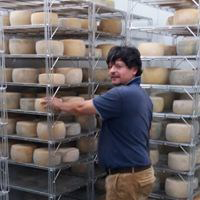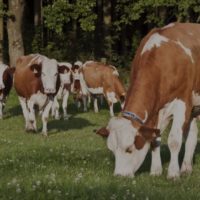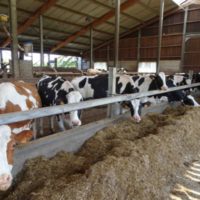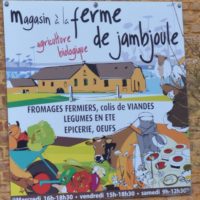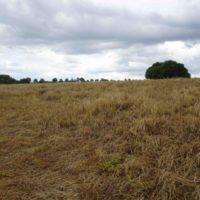“Latte Nobile”: a productive model for high quality milk and dairy products
Practice abstract
Description
In Sardinia (Italy), a farmer adopted an organic farming system, stopped fertilizations and conventional soil tillage to control soil erosion, aiming at satisfying his need for a better quality of cheese produced from raw milk. He recovered semi-natural grasslands, where he controls invasive shrubs mechanically. Sheep graze under a rotational scheme. Sheep diet is integrated by minimum amounts of pulses, cereal grains and lucerne hay bought from the local market. Milk yield is 40000 l per year from 200 lactating sheep.
The farmer greatly benefited from joining to the ‘Latte nobile model’, which can be defined as a ‘production style’ aimed at producing healthy and flavor-rich foods. The ‘Latte nobile model’ requires that the animal diet is mainly based upon natural and/or semi-natural pastures with high plant biodiversity (at least 70% of the dry matter animal intake). Silage is not allowed. The farmer takes advantage of:
- Technical assistance, for obtaining better cheese quality;
- Product traceability, which is guaranteed by the inspections of the non-profit organization Anfosc (http://www.anfosc.it/) members;
- The ‘Latte nobile’ brand;
- The ‘Latte nobile’ association is responsible for informing consumers about the nutritional and healthy aspects of products;
- The ‘Latte nobile’ association takes part to food-related events in Italy and abroad, selling the ‘nobile’ products.
- Farmers obtain a higher price for their products.
The pre-requisites for the successful adoption of this system are:
- Availability of sufficient amount of pastures.
- Personal motivation towards a type of sustainable farm management and product quality
Abstract also available in:
Dutch | French | German | Italian | Polish | Swedish
Additional information
| Farming system | organic farming |
|---|---|
| Main types of animal | dairy sheep |
| Country | |
| Product type | Practice abstract |
| Language | |
| Main domain of innovation | |
| Climate | |
| Soil Type |

